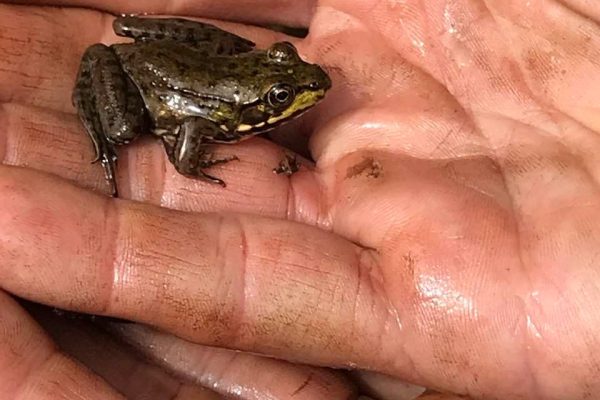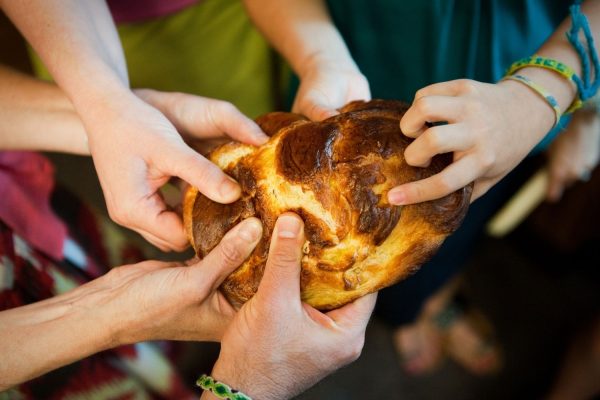This meditation is inspired, in part, by pieces written by Rabbi Steven Exler and Zoketsu Norman Fischer. It is also based on the teaching of the Ba’al Shem Tov, the founder of the hasidic movement, that “a person is a microcosm of the world, and they have inside them Pharaoh, Egypt and so on” (see Toldot Ya’akov Yosef on BeShalach).
Make yourself comfortable, take a deep breath, and then let’s begin…
We were born into slavery.
Our parents were slaves, our grandparents were slaves.
Our bodies, minds and spirits are broken from harsh labor and savage cruelty.
Our parents have told us a story, a story that seems so distant we think it must be about some other people.
It is a story about a people that came into being in relationship with the Infinite, and whose destiny is to live freely in a land they belong in.
But those lofty promises seem far removed and even fantastical.
We have been here so long, our oppression seems to us the way life was, is and will be.
As we have been oppressed, so we have multiplied, and so the Egyptians have come to fear and hate us more, culminating in Pharaoh’s order to murder our newborn sons.
Our situation is suffocating, constrained, in the metzarim, the narrow places, of Mitzrayim (the Hebrew word for Egypt).
We are powerless, we are crushed, we are silenced, we are unable to even name or describe our reality.
When the book of Exodus (in Hebrew, Shemot, meaning “Names”) begins, we are nameless, not even individuals anymore.
And time also has no shape or meaning.
The days, months and years are not marked in any way; they simply stream into one another.
Until, many years later, something eventually changes.
For the first time, we permit ourselves to cry.
This cry is our first acknowledgment of our suffering and the possibility of an alternative to it.
Our cry becomes a prayer, ascending to the Infinite and arousing compassion for our plight.
Our cry is a human awakening that changes G!d; it wakes up the Infinite.
G!d listens, G!d remembers, G!d sees, G!d knows.
We are beginning to retake control of our thoughts, of how we look at ourselves, and at life.
But it does not end there.
As we let ourselves awaken to the truth of our life as it really is, we enter into responsive relationship with life, with the Infinite.
Immediately after we cry out, and the Infinite responds, the Torah describes Moses’ encounter with the Infinite at the burning bush, where he is given the mission of liberating us.
And so we watch in shock as Moses gathers our elders, performs miraculous signs and promises our deliverance.
We thought that we were a permanent part of Egypt, we have been here so long.
But now we are gradually remembering, relearning, what it means to have our own identity, our own story, our own destiny.
Through the terrifying plagues, we learn of the awesome power of G!d, of the awful and awe-full consequences of human actions, and of our distinctiveness.
We have never marked time for ourselves, but now we are being told to count until the tenth day after the new moon and then to take a lamb – an Egyptian god – and brazenly tie it up, and then kill it.
Moses tells us to eat its flesh and smear its blood on our doorposts.
He tells us that the Infinite will smite our oppressors and that we will be spared, protected by the blood, and that we will leave Egypt in haste.
And so it happens…
We count the days.
We take the god of our oppressors.
We tie it up.
We kill it and eat it, and we smear its blood on our doorposts.
The Egyptians are struck, and they cry out in suffering.
We are spared, protected by the blood.
All of us – the Egyptians, Pharaoh, us – come face to face with the simple, profound reality of life and death, of the consequences of our actions.
In this one night, the world changes beyond recognition.
The oppressors are stunned into submission, revealing their vulnerability, while we, the oppressed slaves, are suddenly carried by hope to an uncertain future.
We are being urged by the Egyptians to leave as quickly as possible.
We find ourselves suddenly free, free to pack up our not-yet-risen dough-cakes, and walk out of our slave-homes, through the bloody doorposts and into the boundless possibilities of freedom.
We are free.
We are being reborn through the birth canal of the splitting sea.
We are reentering the flow of life.
We are remembering how to sing.
We are learning once again to make our own choices, how to change and grow, to learn from our mistakes.
We are learning once again what it is to be truly free, truly ourselves, truly alive.
Postscript: Questions to Consider
-
What is the liberation I am needing right now?
-
Freedom from what?
-
Freedom toward what?
-
How have I best made progress in this journey of liberation until now?
-
How might I best progress with this journey of liberation going forward from this moment?











